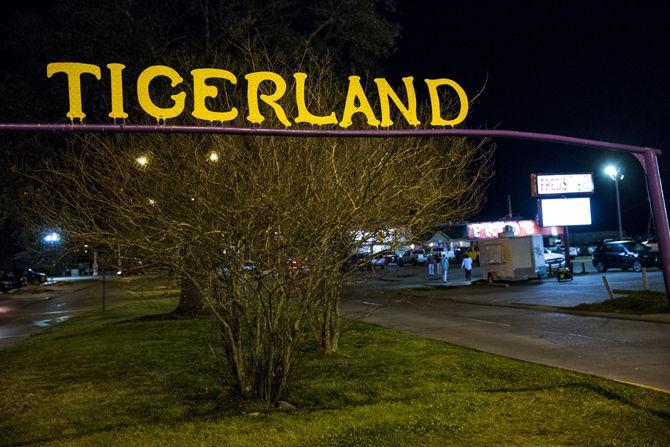The term “open bar” refers to the hours when a bar serves alcoholic drinks free of charge. Free things are almost always good for a buyer, but open bars, especially college bars such as in Tigerland, are a case where sensible, ethical standards should override economics.
Many Tigerland bars advertise free drinks, commonly referred to as “frinks,” during certain hours or sometimes until halftime during game days. Limited open bars place students in an environment that encourages binge drinking. The thought process becomes, “Hell yeah, free drinks, let’s drink as much as we can while we can.”
Far too often have I heard classmates tell stories about how they drank too much in too short a period of time in an effort to get as intoxicated as possible for free. By no means am I innocent of this. I’ve had quite a few forgetful nights during open bars. Those forgetful nights can lead to a plethora of negative consequences.
More than 40 percent of college students report binge drinking, according to a survey by the National Institute of Alcohol Abuse and Alcoholism. Some startling statistics are the result of this culture. More than 690,000 students each year are assaulted by another student who has been drinking. About 1,825 students die from alcohol-related injuries. More than 97,000 students are the victims of alcohol-related sexual assault.
Tigerland bars that provide free drinks during limited hours contribute to that culture and those statistics. Another startling fact to remember is that Reggie’s bar temporarily shut down in June 2017 after having their license revoked for selling alcohol to underage drinkers. Some of those underage drinkers were as young as 16. The figures provided by the NIAAA only accounted for students between the ages of 18-24.
I’m not solely blaming Tigerland for binge drinking at the University. I’m only insisting that the Baton Rouge city government consider a ban on open bars in Tigerland. Sure, they allow for great fun, but at what cost? A ban on open bars wouldn’t solve all of the alcohol-related problems students and authorities face, but it would help to some extent.
I binge drank frequently during my freshman and sophomore years. I can recall taking shots to the point of blackouts in my dorm on any given night. Today, in my senior year, I’m still feeling those repercussions. I’m working on my unhealthy relationship with alcohol that led to substantial court and lawyer fees, triggered and perpetuated my pre-existing anxiety and depression, demanded I step into the rooms of Alcoholics Anonymous and could have easily cost me my life on some occasions.
If a ban on open bars could keep even one student from succumbing to the same dark place I have been, then it’ll be worth it. After all, wouldn’t you pay for your bar tab if it meant saving the life of one vulnerable student? Wouldn’t you pay for your bar tab if it meant a fellow Tiger didn’t have to be the victim of alcohol-related assault?
Open bars encourage binge drinking. We all know the consequences of unhealthy alcohol consumption. Let’s do something about it, even it means paying to party.
James Smith is a 21-year-old mass communication senior from Grand Coteau, Louisiana.







